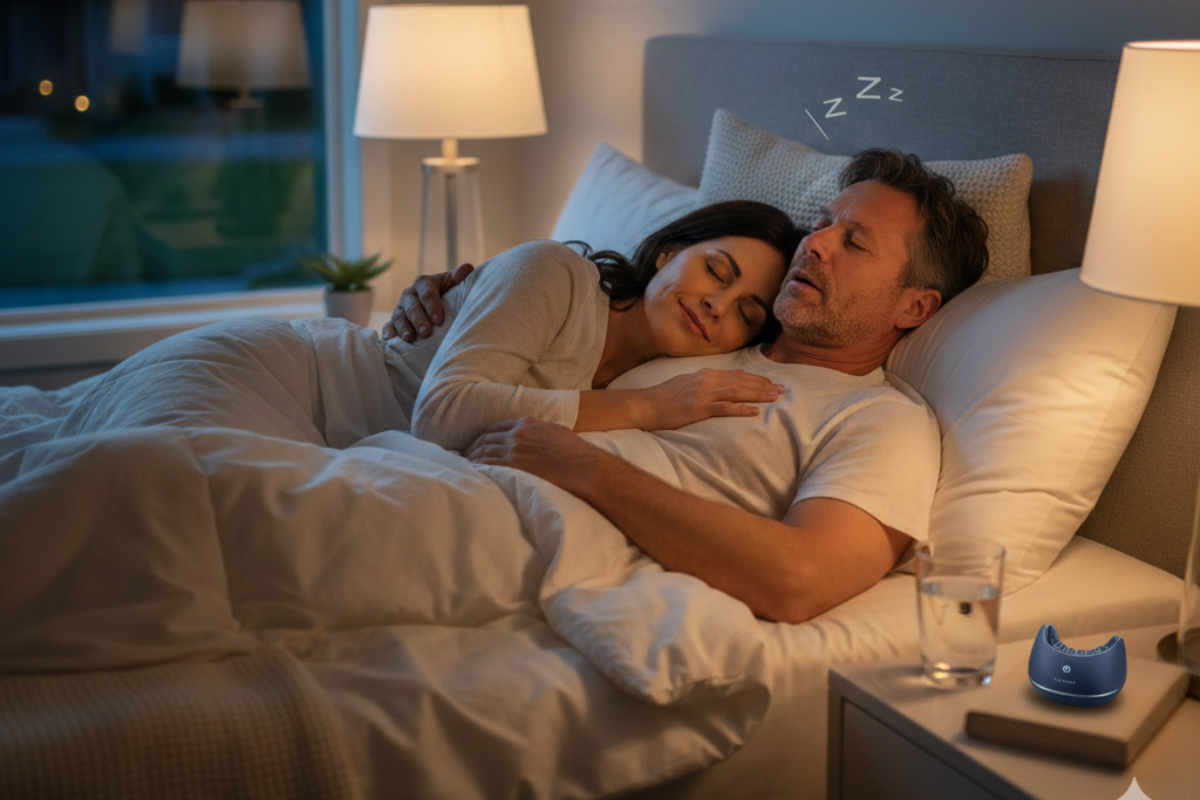Free Shipping - On Orders Over $99 (USA, Canada, UK, & AU)

How intermittent fasting affects your sleep
January 06, 2020 3 min read
We’re sure you’ve seen at least one of your Facebook friends post their before and after results from intermittent fasting. Let’s face it, the results are pretty amazing! This popular fasting craze can certainly be an effective weight loss strategy, but what effects does intermittent fasting have on our sleep?
What is intermittent fasting?
Let’s start with the basics. Intermittent fasting is most popularly used for weight loss by boosting your metabolism. It specifically targets three major hormones: Insulin, HGH, and Norepinephrine. These hormones play big roles in controlling how our body stores and removes fat energy. Fasting does come along with other possible health benefits including lower risk of diabetes and improved brain and heart systems.
The intermittent fasting approach is not necessarily a choice of what you eat, but more so of when you eat. There are a variety of ways one can complete this type of fasting. The 16/8 method is the most common; skip breakfast and only eat from 12pm to 8pm. People who have tried intermittent fasting and have had success will often advise you to play around with times that you’re comfortable with. Ultimately the goal is to eat during an 8 hour window and fast for the remaining 16 hours in the day.
Sleep Pattern Changes
Okay, so we’ve talked about the what’s and why’s, but now we need to discuss the relationship between intermittent fasting and sleep. We’ll give you a heads up: there’s mixed reviews across the board. Some individuals have had better sleep, but some have noted even insomnia while on this fasting regimen. Let’s look at the arguments.
Studies suggest having a neutral stomach before going to bed is great for your body! Sleep is the time where you’re body is in repair mode, and having a quiet and stable stomach definitely helps with this process.
To counter this, some intermittent fasters have noted they are too hungry to have a restful sleep. This might be the result of having inconvenient eating time slots or munching too early before going to bed. Doctors suggest being mindful and eating a carbohydrate-rich dinner are key to making this process successfully work.
Another study shows that intermittent fasting can improve your REM sleep. Typically, your deepest sleep is during the REM portion of your sleep cycle. However, there have been conflicting reports and cases where individuals have said their REM portion is disrupted when they are fasting.
An additional cause of this REM based problem may include too much screen time. Electronics emit a type of light that stimulates your eye receptors. This means it’s best to put your phone and TV away for at least one hour before going to bed.
It’s easy to see why intermittent fasting continues to grow in popularity. However, intermittent fasting and sleep have a complicated relationship. Some note intermittent fasting has a negative affect on their sleep, while for some it's positive or even neutral. If you’re considering intermittent fasting, be sure to keep a close eye on your sleep cycle through a trusted sleep tracker, and pay close attention to how you feel in the morning.
Not sure how to tell if you’re getting a good night’s sleep or not? Check out this blog about the signs of poor sleep.
References
Also in Blog

Healthy Sleep Goals For 2026
December 22, 2025 6 min read

💨 Are Your Nighttime Breathing Issues Robbing You of Your Health and Your Energy?
December 12, 2025 3 min read
Breathing issues during sleep, collectively known as sleep-disordered breathing, are a major public health concern.

Is Your Snoring a Sign of Something More Serious? Unpacking the Science of Sleep
December 05, 2025 3 min read
When you snore, what's actually happening?
Join our Insiders Club
Every week you will receive specials, discounts, and giveaways.
Categories
- Better Sleep
- depression
- Fitness
- funny animal
- Global Citizenship
- health
- Mental Health
- mouthpiece
- nutrition
- pillow
- Productivity
- relationships
- sleep
- sleep apnea
- sleep deprivation
- Sleep Tech
- snoring
- snoring humor
- snoring jokes
- snoring sounds
- stop snoring
- StopSnoringStartLiving
- technology
- Tongue displacement
- travel
- video
- Young Adult

